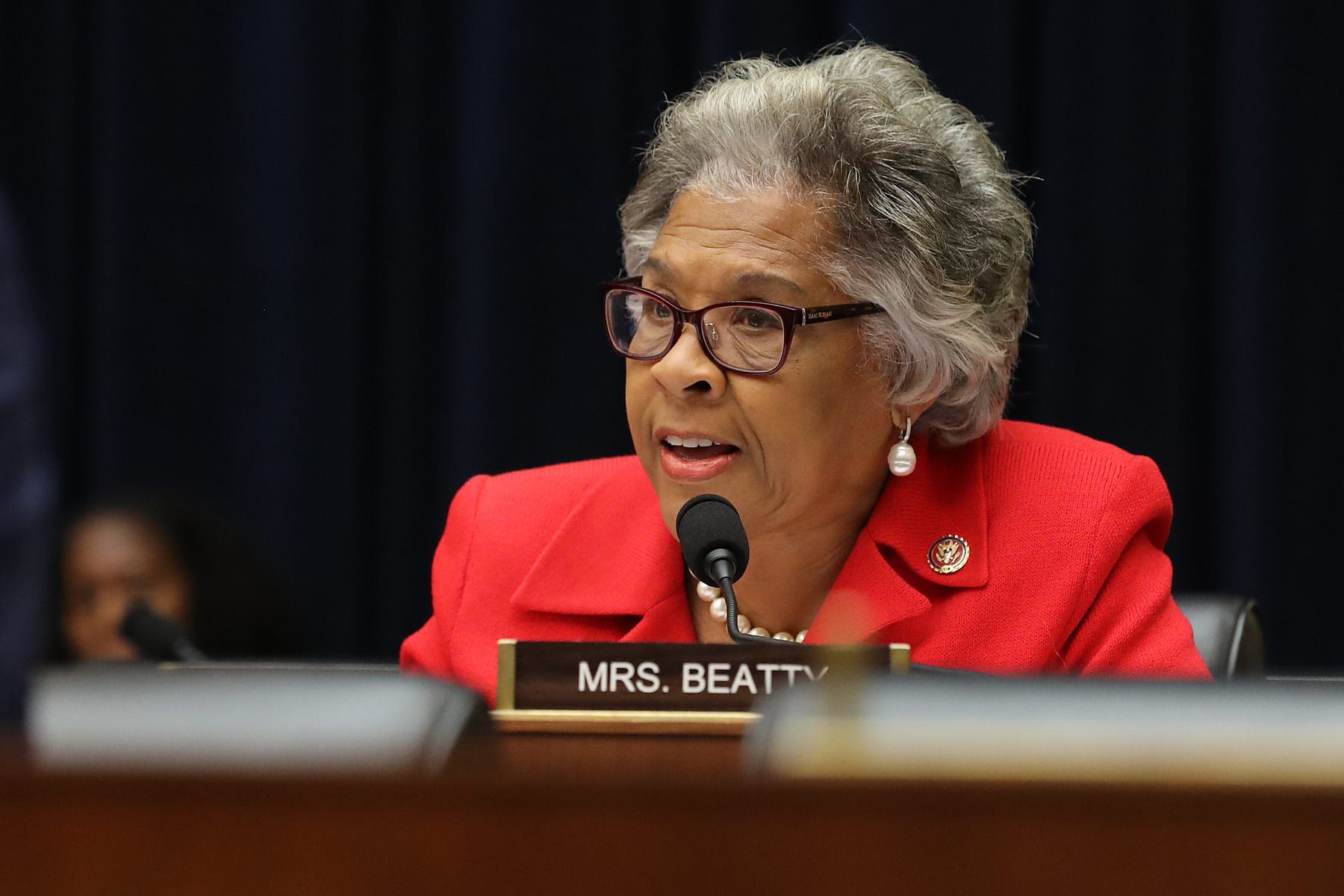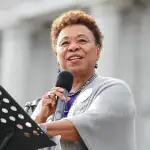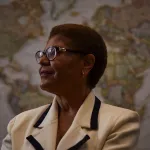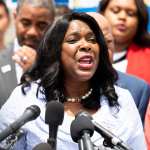As the Congressional Black Caucus marks its 50th anniversary, four Black women are leading the group and its three auxiliary organizations.
New CBC Chair Rep. Joyce Beatty, CBC Foundation Executive Director Tonya Veasey, CBC PAC Executive Director Yolonda Addison, and CBC Institute Executive Director Vanessa Griddine-Jones are shaping the caucus’ legislative and political priorities amid a national reckoning aimed at addressing racial inequality. They all say they are among the Black women at the forefront of these issues.
“Black women are just tired of being behind the scenes and doing all the work and not getting all the credit,” Addison said. “They say if you want something done, ask a busy person. … Black women are the busiest people I know, and we’re finally being seen for getting things done.”
They are leading the organizations at a time when Black women’s political leadership is in the spotlight, as Kamala Harris has become the first woman and Black vice president. And while a record number of Black women, 26, are now serving in Congress and have helped grow the CBC to its largest numbers ever, none are in top roles in party leadership in the U.S. House, and no Black women are serving in the Senate.
Such apparent contradictions highlight the lack of progress in representation for a core constituency of the Democratic Party, Beatty said.
“As we make progress, I don’t think we have made enough change,” Beatty said. “When you talk about change, you have to be aware of the need, accept that you have to change, and make the change. This is our time for our power and our message.”
Beatty is among those being discussed to run for the Ohio Senate seat being vacated in 2022 by Republican Sen. Rob Portman. She said in an interview Sunday that she is focused on her latest role and that it is “doubtful” that she will enter the race.
“I have been humbled and honored with the overwhelming number of calls for me to run,” Beatty said. “You never say no. What’s most important is doing what’s right for the people of the state of Ohio and this country. If at some point, they thought it was right and I was the best, that would be something I would have to take a look at.”
After a year in which the country was forced to confront systemic racism, the health and economic disparities of the COVID-19 pandemic and fresh assaults on voting rights, the call to “listen to Black women” grew louder. But Black women organizers, candidates and voters also demanded to be heard, said Veasey, who runs the CBC Foundation, the group’s nonprofit public policy research arm. She became the full-time director in July after filling the role on an interim basis.
“The need to understand our power and collectively work together has been amazing to see,” Veasey said. “There hasn’t been an open door for us, but we are creating our own doors, bringing our own chair and table and serving up the menu.”
Veasey said the foundation, which is also led by all women, raised more money than it ever has in its 45-year history — enabling them to double revenue, triple its scholarship fund and double the number of fellows working on Capitol Hill.
“In a double pandemic, bringing these powerful women together, we didn’t just survive, we thrived,” she said.
In the early days of President Joe Biden and Vice President Harris’ administration, they have stressed racial inequality as one of the four crises that faced them upon taking office. The issue has long been a priority for the Congressional Black Caucus, which now has 57 members after starting in 1976 with only 13. Caucus leaders want to focus on addressing the disproportionate impact of the coronavirus pandemic on Black Americans, as well as on criminal justice reform, voting rights and education.
A Democratic majority in the House is key to passing much of the legislation that matters to Black lawmakers and their constituents, Addison said, adding that CBC PAC will work to help Black Democrats up for reelection in vulnerable districts, including Reps. Lauren Underwood in Illinois, Lucy McBath in Georgia and Jahana Hayes in Connecticut.
“We try to nationalize races as much as possible, because there are a lot of people who are going to understand the importance of electing certain people who may not live in that district,” she said, pointing out that the PAC has also raised a record amount of money since 2018 — $10 million, more than triple its previous record of about $3 million.
Griddine-Jones, executive director of the CBC Institute, which focuses on voter education and political training, said that while many Americans are now realizing the role of Black women in democracy, it is still a frightening time, citing the insurrection in the U.S. Capitol on January 6 as a reminder. She said policies aimed at inclusion will not go far enough until more Americans confront the impact of racism on the country.
“Black voters want what everybody wants: housing, education, health care, to take care of ourselves and families, safe places for us to be in,” Griddine-Jones said. “Why are we so different from any other voters? We want the guarantees of the Constitution to apply to us without having to protest or set things on fire.”






